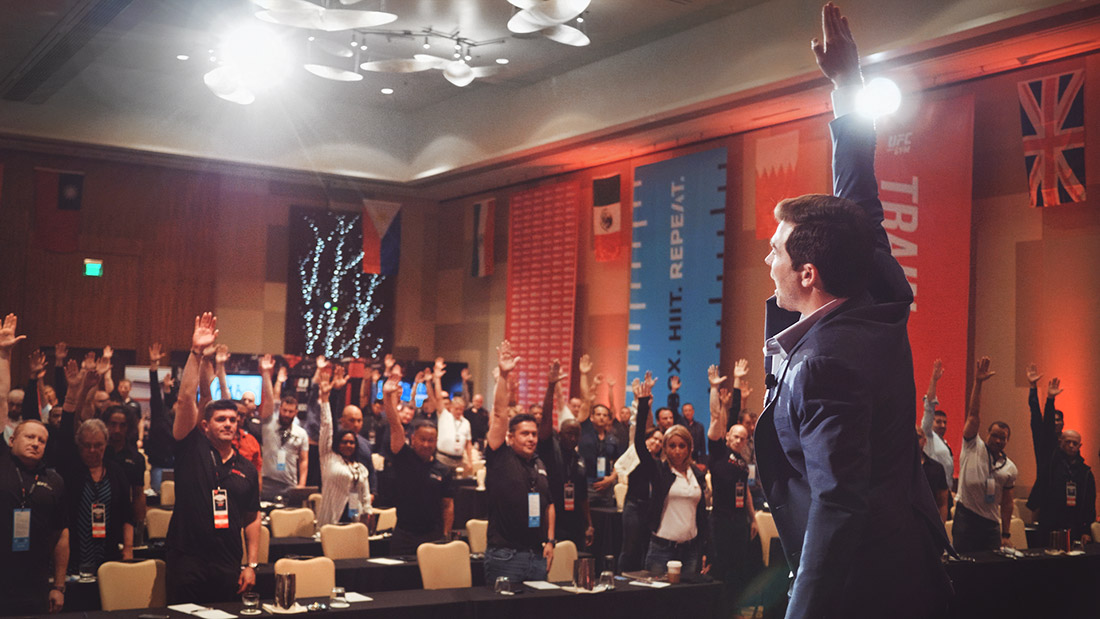The business environment is significantly different than it was some years back. Modern-day CEOs have to keep up with rapid technology changes and a more robust business environment. There is also increased regulatory pressure and shorter CEO tenures, demanding quick results from business executives. To withstand the pressure that comes with holding the CEO position in your organization and produce results, you need an executive coach. But maybe you don't understand what executive coaching is.
Executive coaching is a talent development practice individually tailored to a client. It utilizes one-on-one meetings between a coach and the client to help the client understand himself better and see how others perceive him.
Executive coaching also succeeds in an environment of trust and confidentiality. Your executive coach can help you identify your goals and guide you to reach those goals.
You may not think you need executive coaching, but have you considered why even the most successful sports personalities still have coaches? It is because there is always something new to learn, whatever your level of success is.
Besides, competitors are working round the clock to reach where you are or beat you at the game. Working with an executive coach pushes you to remain competitive, devise new strategies to achieve more, as well as develop more meaningful relationships with the people you engage with. Here is why you need an executive coach as a CEO:
Why Do You Need Executive Coaching?
To Help You Think Through Your Visions and Strategies
People put a higher demand on a CEO to set the direction for the organization. Executive coaching provides you with a thinking environment. It acts as your sounding board, challenging your assumptions and helping you overcome them.
For Continued Learning
Through executive coaching, you can learn new perspectives to improve your management skills. There is no ceiling to how good you should become as a CEO since there is always something new to learn and a better way of doing things.
Even when your coach guides you to improve in one area, the improvement may reflect in other areas. For instance, if you are coached to be more effective in communication, the change may reflect in your ability to relate better with your teams, increasing their motivation as well as productivity.
It's Not Easy to Find Mentor
A mentor should be more experienced in your sphere. As you move up the leadership ranks, you may find it hard to get people to mentor you as well as guide you to new opportunities.
Most senior people who may fit the job could be competitors that you cannot trust with company secrets. Coaching fills this gap and provides a confidential environment where you can share your vulnerabilities without being judged.
Maintaining a Work-Life Balance
The demands and concerns of your job can make you work beyond your official workweek, blurring the line between your work, family, as well as social life. Coaching helps you look at life holistically to see how all aspects of your life contribute to your success at work.
For Your Support System
Executives deal with many important and sometimes sensitive issues that may be hard to talk about with family, friends, or work contacts. You need a team you can share with and go to for support.
You shouldn't overburden family members, however supportive they may be. Through executive coaching, you can get an appropriate context to discuss issues objectively and confidentially.
Benefits of Executive Coaching for CEOs
Empowerment
Your coach uncovers your weaknesses and strengths as well as tracks your progress in achieving your goals. The coach allows you to have reflective sessions to see where you are coming from, where you are and set goals for where you want to be. This empowers you to recognize improvements and appreciate your achievements.
Increased Emotional Intelligence
Through executive coaching, you become more aware of yourself and others. This increases your emotional intelligence, and you become more empathetic.
This makes your teams feel safe working under you, as they know you understand them and care about what they go through on a day-to-day basis.
Better Leadership Abilities
Your executive coach helps you open your mind to see new perspectives. When the coach asks you questions, he opens your thought patterns to consider other viewpoints. This makes you flexible and equips you to make precise, quick, as well as innovative decisions even under immense pressure.
New Insights
A coach can help you uncover a deeper problem and see why you or other people in your organization react in a particular way. Together with your coach, you can analyze a problem and devise solutions you can use in similar circumstances in the future.
Your coach can help you change your insight about how you relate with people. It is common for executives to want to relate only with people with similar backgrounds as theirs. However, this can impede your effectiveness.
An executive coach can open your eyes to the value of forging better relationships with people from diverse backgrounds since you need people to build a successful business. You will use people to implement your strategies, some of whom may be dissimilar backgrounds.
Enhanced Performance
Your coach can help you discover new weaknesses you were not aware you had. You can also pick a coach targeting a particular weakness, and the coach will guide you to overcome it. This may help you develop new abilities and attitudes to improve your performance.
With new techniques picked from your coaching sessions, you may relate better with employees. This will motivate them to perform better to enhance the overall productivity in your organization.
Effective Communication
Coaching may help you analyze and improve your communication skills. Remember, as a CEO, you share a lot of information with different teams. Your communication should be clear, timely, as well as effective.
Executive coaching helps you identify gaps in your communication skills. Your coach goes beyond helping you identify areas you need to improve. They guide you to practice those areas to become effective in your communication.
Since you interact with different individuals from different backgrounds, an executive coach may help you learn how to communicate with each of them. You may also learn how to communicate in a crisis. In such cases, you have to be careful about what you reveal to the public to safeguard the organization's reputation. And, at the same time, share sufficient information to diffuse anxiety.
When you improve your communication skills, you can negotiate more effectively to get better deals for your organization. Besides, it boosts your confidence to help you position yourself as an industry leader.
Improved Motivation
Your motivation will increase when you begin seeing results from your coaching sessions. Realizing that you can overcome the challenges you were facing and find solutions that bring your desired results will motivate you to work harder to reach your goals.
In essence, executive coaching helps diffuse obstacles by assisting you to see them for what they are. And thinking critically about how you can overcome them. Your teams are also more motivated since they can see you offering leadership and communicating your vision and strategies.
Are there successful CEOs who had coaches? Yes, there are, and we will highlight them in this next section.
Examples of Successful Business Owners and CEOs Who Had Coaches
Steve Jobs
He was the co-founder and CEO of Apple, with a reputation of being a difficult, demanding, and inquisitive leader. He contracted John Mattone, one of the greatest executive coaches in the world, for assessment and coaching sessions.
John Mattone reveals that the sessions covered topics like the vulnerability decision, having a mindset of entitlement versus a mindset of duty, and having the courage to execute with pride, passion, as well as precision. They also covered thinking differently, thinking big and staying present, and being vigilant.
Marc Benioff
As the Chairman and CEO of Salesforce.com, Marc Benioff relied on coaching from Tony Robbins. According to him, Tony Robbins helped him grow Salesforce to a company worth more than $6 billion. He attributes his company's success in cloud computing to Tony Robbins' tools and strategies that shaped their organizational culture.
Roger Enrico
Roger Enrico was the CEO of Pepsi, one of the largest soft drink companies in the world. He was 38 years old when he was appointed CEO of Pepsi in 1963. He remained the CEO until 2001 when he retired.
In fact, he also hired John Mattone as his executive coach. His coaching sessions inspired him to launch an 18-month coaching program that he personally led at Pepsi.
Brian C. Cornell
Marshall Goldsmith coached Brain C. Cornell when he was the Chairman and CEO of Target Corporation. He speaks highly of his coach, saying that he helped him become a better person and a better leader.
According to Brian, Marshal Goldsmith has a blend of unique insights, practical steps, as well as intelligence to help you improve your performance. He goes on to say that Goldsmiths' approach pushes you to move from knowing to doing what you know.
Eric Schmidt
Eric Schmidt served as the Chairman and CEO of Alphabet and Google. He states that the right coach can be one of the critical resources in an organization. According to him, you require a coach to motivate you and help you solve human problems. Bill Campbell, a former director of Apple, coached him.
Oprah Winfrey
Martha Beck has been Oprah Winfrey's coach for more than 25 years. Martha is the face behind most of Oprah's successes. She assesses and sees what Oprah may not see and tells her the truth in a way no one else would.
This way, she helps Oprah become a better person and leader. Most of the other people in Oprah's circle lack such insights or the courage to tell them to her.

How Does Coaching Differ from Mentorship?
Executive coaching differs from mentorship in several ways. Here is how:
Length
While coaching is long-term and sometimes lifelong, coaching may be short-term. This is because coaching is objective-driven and structured. Mentorship, on the other hand, is informal and spontaneous.
Model
Mentorship is voluntary and mostly based on friendship. Even when done formally, mentors rarely expect payment since they take it as their way of giving back. However, coaching involves paid training as well as upskilling sessions.
Session Structuring
In mentorship, the mentee drives the sessions, while in coaching, your coach drives the sessions. This does not mean you will not have input in a coaching session.
Personal Experiences
Your mentor is likely to use his personal experiences as a reference point. However, a coach hardly uses his personal experiences and may not have experience in your industry.
How Do You Choose Your Executive Coach?
Here are some things to consider when contracting an executive coach:
Determine Your Objectives
Coaching is objective-driven, meaning you are likely to hire a coach to help you deal with a specific issue. You may contract an executive coach to act as your sounding board. Or help you deal with the challenges of your new executive position. You can also hire a coach to help you achieve a particular business result.
Find the Right Fit
After deciding what you want to get out of your coaching, look for a coach experienced in that area. The coach may not have walked in your shoes, but it helps if he has.
If the coach lacks direct experience working on challenging situations you may be dealing with, he should have worked with executives in similar situations for a considerable length of time. The coach should understand your profession and the situations you deal with daily.
Create a Rapport
Effective coaching relies heavily on the trust level between you and your coach. A high degree of trust will help you dissect deeply personal topics without holding back or feeling like the coach is dressing you down. You should relate in a way that makes you comfortable to be vulnerable before the coach.
Your initial sessions should last about 30 minutes and be about assessing the coach. Ask questions and see how well he listens to you. Also, see if the coach offers insight and pushes you to new levels of challenges.
Explore the Methodology
Some coaches prefer focusing on the CEO. Others may incorporate a few members of the executive team in your organization. Find out how the coach wants to structure the sessions and align yourself to his schedule.
Do Your Due Diligence
Talk to clients who have worked with your coach to learn more about their experiences. The aim is to find out if the coach is a good fit for you and not to measure if you need the coach.
What are the Qualities of a Good Executive Coach?
Here are some of the things you should expect from an executive coach:
Full Attention
Your coach should not be distracted during your sessions. He should listen keenly and give well-thought responses.
Being Challenged
Your coach should challenge you to push yourself harder than you can imagine. They should not tell you only what you know. You should be challenged by how much they seem to know to challenge your belief that you are the best and push you to achieve more.
To be a Learner
Your coach should be a learner, updated in the most recent technology and strategies, the same way you expect your medical doctor to master new techniques in his field. Expect your coach to be up-to-date with business strategies, technologies, and solutions.
Have a Good Chemistry
Having good chemistry is significant if you are to let down your guard before the coach to allow him to assess you and let you see who you are. Some coaches end up being valuable confidants, holding their learners accountable without passing judgment.
Expect your coach to want you to succeed and, to do everything they can to push you in that direction. Your relationship may grow beyond your formal engagement, and you may find yourselves working for longer.
However, this may depend on the coach and their area of expertise. If the coach has deep professional knowledge in your industry, they may prove to be a critical resource that you want to tap beyond the area you wanted to be coached.
Where Can You Find an Executive Coach?
You can ask for referrals of possible coaches or search for one on the International Coaches Federation. The website has a list of accredited executive coaches, though you may still need to ask around to know the one you select better.
You can also join a program designed to help CEOs and business owners scale their companies through sales. One of the best programs for CEOs is Deal Flow Accelerator. This is a 6-week sales growth bootcamp for business executives looking to scale.
Additionally, working with an accredited, seasoned CEO Coach like Brian Cristiano, who has worked with Fortune 500 executives, celebrities, and startups can give you a significant edge. Brian has worked as an executive coach in brands like New York Met, Gillette, Direct TV, and Jennifer Lopez.
He helped these brands transform and reach greater levels of growth and maximize their potential. If you're looking for the best of the best then Contact Bold CEO to see if Brian or CEO coaching is a fit for you.
You May Also Like
These Related Articles

Unlocking Growth Potential in Entrepreneurs Through CEO Coaching

6 Pervasive Business Problems That CEO Coaching Solves





